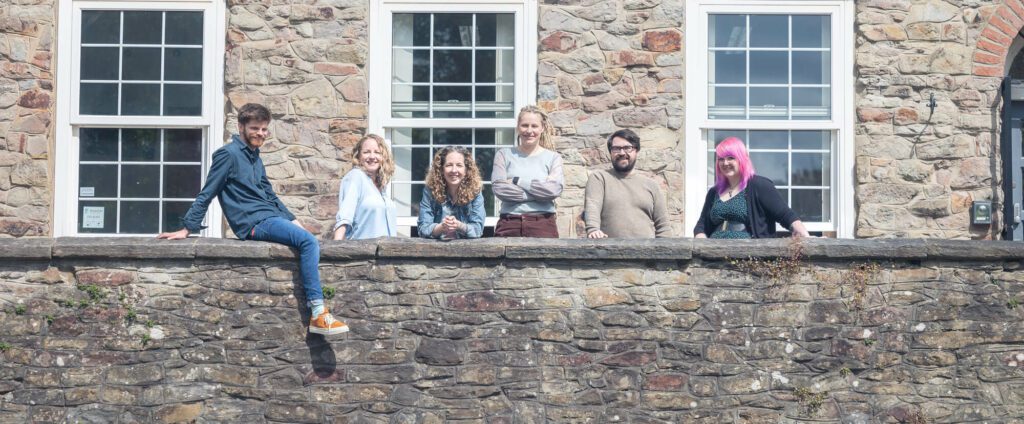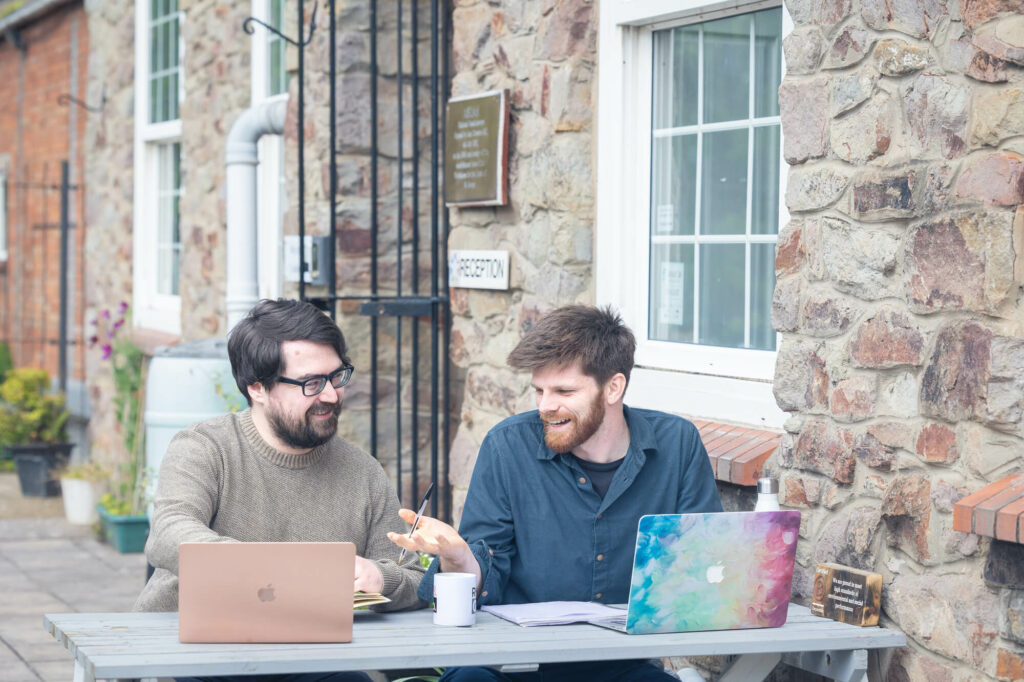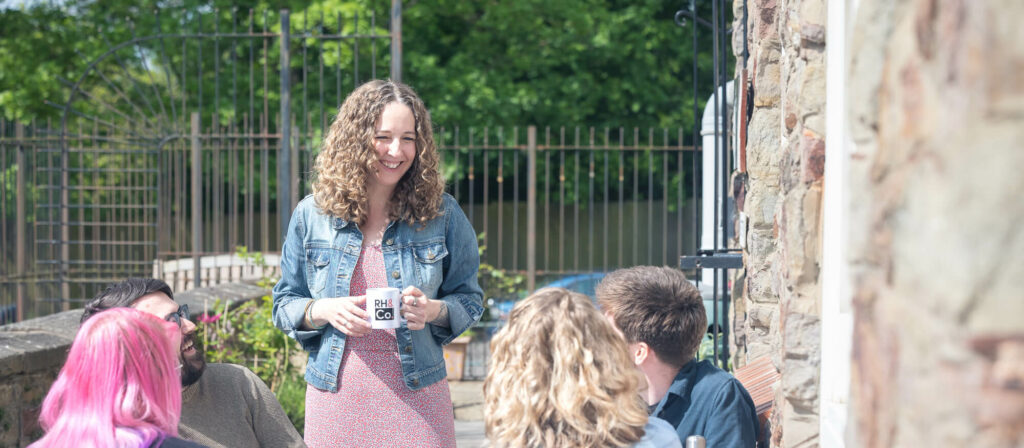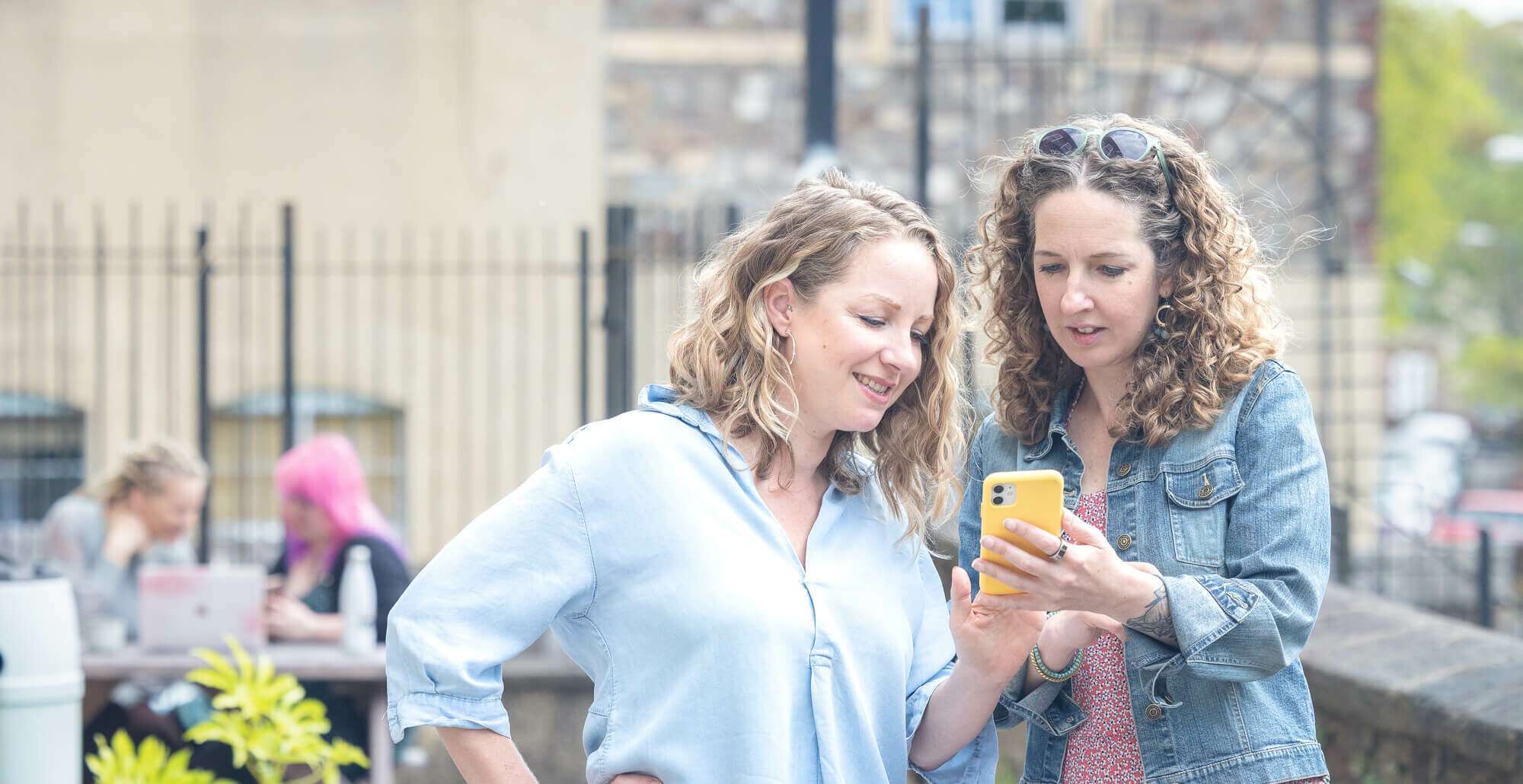
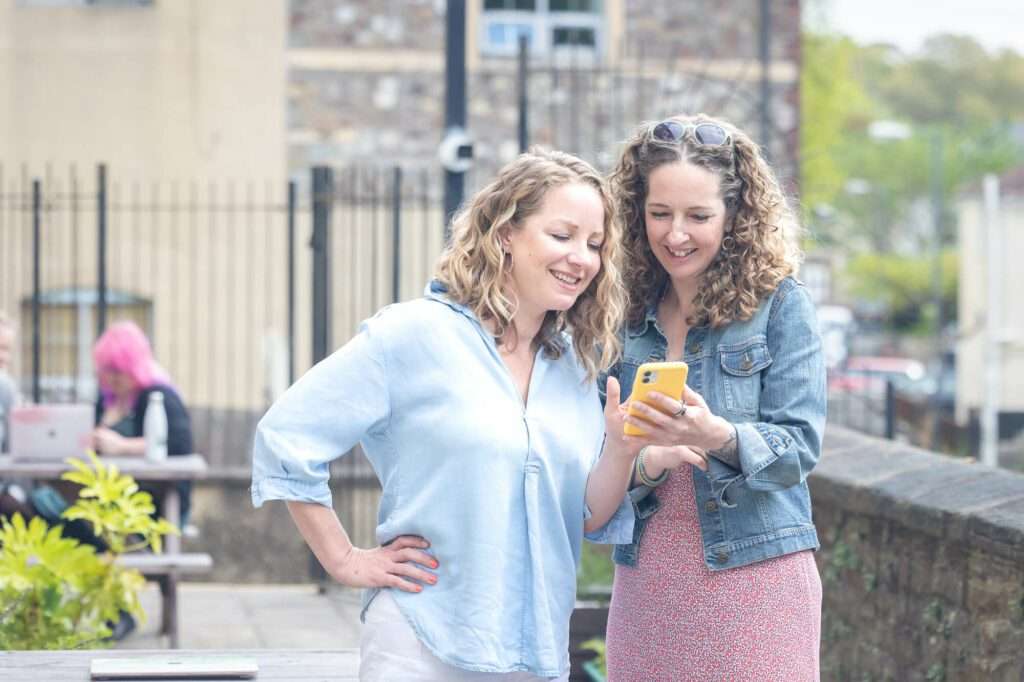
Social Enterprise World Forum: content strategy, website copy, blogging
Creating an international interview-led blog series to raise awareness of a new global initiative
Our servicesSupporting the global social enterprise movement
The Social Enterprise World Forum (SEWF) is dedicated to strengthening the global social enterprise movement to accelerate our transition to a new economy. As well as running large international events, they provide consultancy services to support policy and strategy creation worldwide, conduct, curate and partner on important research, and much more.
Having worked with us on a number of foundational projects in the past, including developing a content strategy and creating new website copy, SEWF approached us in early 2024 to support them with an awareness raising campaign for a new project: People & Planet First.

“RH&Co have given us the flexibility we’ve needed and have worked with empathy and understanding, which is so crucial…
Not only did they help us create a successful campaign for People & Planet First Week, but we now have stories that we can repurpose over and over again.”
– Helen Harvey, Director of Community & Curation, SEWF

The brief: an awareness raising campaign for a new verification
In 2023, SEWF helped to launch People and Planet First, a verification for all organisations that prioritise social or environmental purpose over profit, including social enterprises, fair trade enterprises and others. Developed with partners around the world, it is a decentralised ‘network of networks’, stewarded by a number of organisations including SEWF.
SEWF approached us in early 2024 to help create content for an awareness-raising campaign with which to launch People and Planet First Week on Social Enterprise Day in November. Helping them to make the most of their budget was key, so we developed a brief that would allow us to create the core blog articles, leaving their internal team to convert this into social media content, emails and so on.


The challenge: a complex structure with diverse stakeholders
Although in some ways People and Planet First is a straightforward verification process, in reality communicating the nuances of its structure and governance is more complex than it appears. For example, SEWF is one of the stewards of People and Planet First – the standards don’t belong to them but have been developed by partners around the world as a participatory verification system. And the verification process is carried out by a number of different networks and partners, representing a diverse range of people from across the globe.
“If we were to have used another copywriting agency – one that didn’t align with our values and believe in what we were trying to do – I think we’d have wasted a lot of money and time and not got any quality content from it that we could use,” says Helen Harvey, SEWF’s Director of Community & Curation.
“Having worked with RH&Co before, we knew they would just get it, and give us the flexibility and adaptability we needed to make the project work. With so many pressures on the internal team, it was such a weight off, knowing that the content was going to get done and that we’d be ready for the launch.”

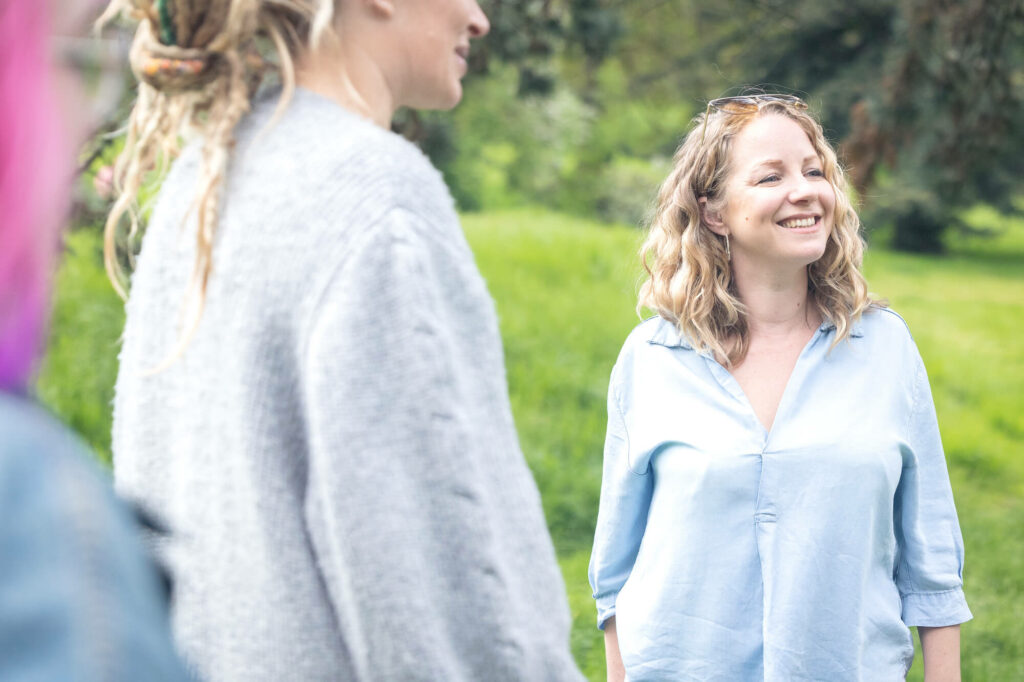
The project: showcasing social enterprises around the world
The campaign planning stage went through a number of iterations before we arrived on a focus for the articles: a series of interviews designed to spotlight different geographies and different types of organisation types and structures, including social enterprises, fair trade enterprises and Indigenous-led businesses
Over a period of several weeks we interviewed individuals from a host of countries, from Kenya to Germany, Lebanon to Australia, representing organisations including Doughnut Economics Action Lab, GoodMarket and the Network of Africa Social Entrepreneurs.
“Social capital is so important for People and Planet First,” says Helen. “We have built up a lot of relationships and connections and trust in our community. To introduce an external person or organisaton into one of those enterprises is always a risk but we had such a great response from everyone who was interviewed by the RH&Co team.”

“Having worked with RH&Co before, we knew they would just get it, and give us the flexibility and adaptability we needed to make the project work.”
– Helen Harvey, Director of Community & Curation, SEWF
More case studies


Social Enterprise World Forum: content strategy, website copy, blogging
Creating an international interview-led blog series to raise awareness of a new global initiative
Our servicesSupporting the global social enterprise movement
The Social Enterprise World Forum (SEWF) is dedicated to strengthening the global social enterprise movement to accelerate our transition to a new economy. As well as running large international events, they provide consultancy services to support policy and strategy creation worldwide, conduct, curate and partner on important research, and much more.
Having worked with us on a number of foundational projects in the past, including developing a content strategy and creating new website copy, SEWF approached us in early 2024 to support them with an awareness raising campaign for a new project: People & Planet First.

“RH&Co have given us the flexibility we’ve needed and have worked with empathy and understanding, which is so crucial…
Not only did they help us create a successful campaign for People & Planet First Week, but we now have stories that we can repurpose over and over again.”
– Helen Harvey, Director of Community & Curation, SEWF

The brief: an awareness raising campaign for a new verification
In 2023, SEWF helped to launch People and Planet First, a verification for all organisations that prioritise social or environmental purpose over profit, including social enterprises, fair trade enterprises and others. Developed with partners around the world, it is a decentralised ‘network of networks’, stewarded by a number of organisations including SEWF.
SEWF approached us in early 2024 to help create content for an awareness-raising campaign with which to launch People and Planet First Week on Social Enterprise Day in November. Helping them to make the most of their budget was key, so we developed a brief that would allow us to create the core blog articles, leaving their internal team to convert this into social media content, emails and so on.


The challenge: a complex structure with diverse stakeholders
Although in some ways People and Planet First is a straightforward verification process, in reality communicating the nuances of its structure and governance is more complex than it appears. For example, SEWF is one of the stewards of People and Planet First – the standards don’t belong to them but have been developed by partners around the world as a participatory verification system. And the verification process is carried out by a number of different networks and partners, representing a diverse range of people from across the globe.
“If we were to have used another copywriting agency – one that didn’t align with our values and believe in what we were trying to do – I think we’d have wasted a lot of money and time and not got any quality content from it that we could use,” says Helen Harvey, SEWF’s Director of Community & Curation.
“Having worked with RH&Co before, we knew they would just get it, and give us the flexibility and adaptability we needed to make the project work. With so many pressures on the internal team, it was such a weight off, knowing that the content was going to get done and that we’d be ready for the launch.”


The project: showcasing social enterprises around the world
The campaign planning stage went through a number of iterations before we arrived on a focus for the articles: a series of interviews designed to spotlight different geographies and different types of organisation types and structures, including social enterprises, fair trade enterprises and Indigenous-led businesses
Over a period of several weeks we interviewed individuals from a host of countries, from Kenya to Germany, Lebanon to Australia, representing organisations including Doughnut Economics Action Lab, GoodMarket and the Network of Africa Social Entrepreneurs.
“Social capital is so important for People and Planet First,” says Helen. “We have built up a lot of relationships and connections and trust in our community. To introduce an external person or organisaton into one of those enterprises is always a risk but we had such a great response from everyone who was interviewed by the RH&Co team.”

“Having worked with RH&Co before, we knew they would just get it, and give us the flexibility and adaptability we needed to make the project work.”
– Helen Harvey, Director of Community & Curation, SEWF
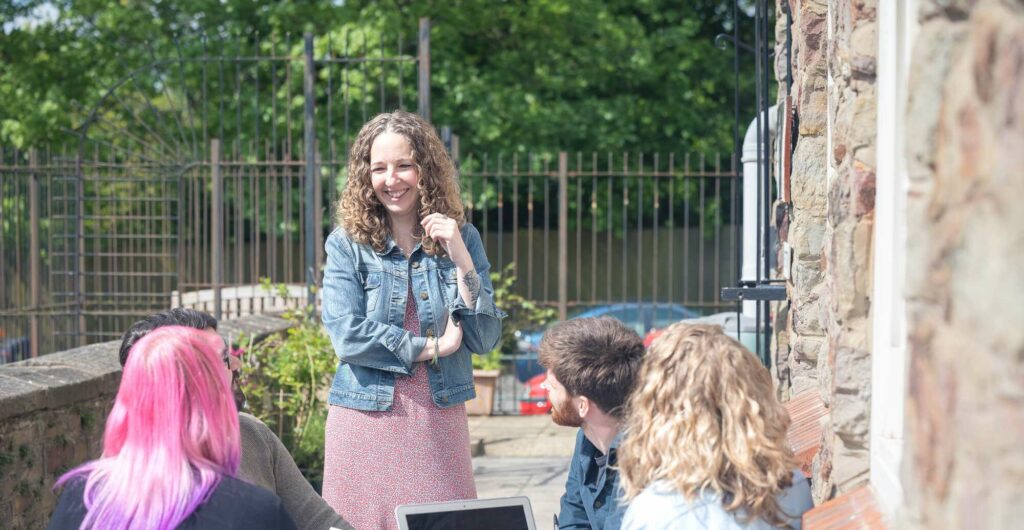
Slow and steady wins the race
As in so many global organisations, the number of stakeholders involved in each TPCL project requires careful planning, proactive project and account management, and the ability to facilitate and mediate conversation to ensure all voices are heard.
This can make the process of articulating expertise “slow and messy”, says Marcus – which is why he values having an expert team walking them through it, including bringing challenges where it’s needed.
“RH&Co are prepared to engage in a debate. It’s not ‘Marcus, if this is what you want, here it is’ or ‘No Marcus, this is what we wrote so this is what it is’, it’s ‘Okay, let’s talk about it.’ That’s what I like, it’s that ability to engage in a discussion. It’s very collaborative.”
“When it comes to choosing an agency, don’t underestimate the basics – availability, willingness, positivity – all of which RH&Co bring. Of course the quality of the work is excellent, I expect that, but it’s the quality of the relationship that stands out even more.”
More case studies


Social Enterprise World Forum: content strategy, website copy, blogging
Creating an international interview-led blog series to raise awareness of a new global initiative
Our servicesSupporting the global social enterprise movement
The Social Enterprise World Forum (SEWF) is dedicated to strengthening the global social enterprise movement to accelerate our transition to a new economy. As well as running large international events, they provide consultancy services to support policy and strategy creation worldwide, conduct, curate and partner on important research, and much more.
Having worked with us on a number of foundational projects in the past, including developing a content strategy and creating new website copy, SEWF approached us in early 2024 to support them with an awareness raising campaign for a new project: People & Planet First.

“RH&Co have given us the flexibility we’ve needed and have worked with empathy and understanding, which is so crucial…
Not only did they help us create a successful campaign for People & Planet First Week, but we now have stories that we can repurpose over and over again.”
– Helen Harvey, Director of Community & Curation, SEWF

The brief: an awareness raising campaign for a new verification
In 2023, SEWF helped to launch People and Planet First, a verification for all organisations that prioritise social or environmental purpose over profit, including social enterprises, fair trade enterprises and others. Developed with partners around the world, it is a decentralised ‘network of networks’, stewarded by a number of organisations including SEWF.
SEWF approached us in early 2024 to help create content for an awareness-raising campaign with which to launch People and Planet First Week on Social Enterprise Day in November. Helping them to make the most of their budget was key, so we developed a brief that would allow us to create the core blog articles, leaving their internal team to convert this into social media content, emails and so on.


The challenge: a complex structure with diverse stakeholders
Although in some ways People and Planet First is a straightforward verification process, in reality communicating the nuances of its structure and governance is more complex than it appears. For example, SEWF is one of the stewards of People and Planet First – the standards don’t belong to them but have been developed by partners around the world as a participatory verification system. And the verification process is carried out by a number of different networks and partners, representing a diverse range of people from across the globe.
“If we were to have used another copywriting agency – one that didn’t align with our values and believe in what we were trying to do – I think we’d have wasted a lot of money and time and not got any quality content from it that we could use,” says Helen Harvey, SEWF’s Director of Community & Curation.
“Having worked with RH&Co before, we knew they would just get it, and give us the flexibility and adaptability we needed to make the project work. With so many pressures on the internal team, it was such a weight off, knowing that the content was going to get done and that we’d be ready for the launch.”


The project: showcasing social enterprises around the world
The campaign planning stage went through a number of iterations before we arrived on a focus for the articles: a series of interviews designed to spotlight different geographies and different types of organisation types and structures, including social enterprises, fair trade enterprises and Indigenous-led businesses
Over a period of several weeks we interviewed individuals from a host of countries, from Kenya to Germany, Lebanon to Australia, representing organisations including Doughnut Economics Action Lab, GoodMarket and the Network of Africa Social Entrepreneurs.
“Social capital is so important for People and Planet First,” says Helen. “We have built up a lot of relationships and connections and trust in our community. To introduce an external person or organisaton into one of those enterprises is always a risk but we had such a great response from everyone who was interviewed by the RH&Co team.”

“Having worked with RH&Co before, we knew they would just get it, and give us the flexibility and adaptability we needed to make the project work.”
– Helen Harvey, Director of Community & Curation, SEWF

Slow and steady wins the race
As in so many global organisations, the number of stakeholders involved in each TPCL project requires careful planning, proactive project and account management, and the ability to facilitate and mediate conversation to ensure all voices are heard.
This can make the process of articulating expertise “slow and messy”, says Marcus – which is why he values having an expert team walking them through it, including bringing challenges where it’s needed.
“RH&Co are prepared to engage in a debate. It’s not ‘Marcus, if this is what you want, here it is’ or ‘No Marcus, this is what we wrote so this is what it is’, it’s ‘Okay, let’s talk about it.’ That’s what I like, it’s that ability to engage in a discussion. It’s very collaborative.”
“When it comes to choosing an agency, don’t underestimate the basics – availability, willingness, positivity – all of which RH&Co bring. Of course the quality of the work is excellent, I expect that, but it’s the quality of the relationship that stands out even more.”
A partnership that’s unlikely to end soon
The guide isn’t the only thing that’s delivered results for Weavr. After three years of working together, and many milestones behind us, Weavr are in no hurry to move on from working with RH&Co.
“There’s usually always so much work to do, working with agencies, whereas RH&Co get it, and they get it fast,” says Adam. “They’re also adaptable, suggesting different ways of working and sensing what we need before we ask. Essentially, they’re not taking orders, they’re consulting for us.”
More case studies


Social Enterprise World Forum: content strategy, website copy, blogging
Creating an international interview-led blog series to raise awareness of a new global initiative
Our servicesSupporting the global social enterprise movement
The Social Enterprise World Forum (SEWF) is dedicated to strengthening the global social enterprise movement to accelerate our transition to a new economy. As well as running large international events, they provide consultancy services to support policy and strategy creation worldwide, conduct, curate and partner on important research, and much more.
Having worked with us on a number of foundational projects in the past, including developing a content strategy and creating new website copy, SEWF approached us in early 2024 to support them with an awareness raising campaign for a new project: People & Planet First.

“RH&Co have given us the flexibility we’ve needed and have worked with empathy and understanding, which is so crucial…
Not only did they help us create a successful campaign for People & Planet First Week, but we now have stories that we can repurpose over and over again.”
– Helen Harvey, Director of Community & Curation, SEWF

The brief: an awareness raising campaign for a new verification
In 2023, SEWF helped to launch People and Planet First, a verification for all organisations that prioritise social or environmental purpose over profit, including social enterprises, fair trade enterprises and others. Developed with partners around the world, it is a decentralised ‘network of networks’, stewarded by a number of organisations including SEWF.
SEWF approached us in early 2024 to help create content for an awareness-raising campaign with which to launch People and Planet First Week on Social Enterprise Day in November. Helping them to make the most of their budget was key, so we developed a brief that would allow us to create the core blog articles, leaving their internal team to convert this into social media content, emails and so on.


The challenge: a complex structure with diverse stakeholders
Although in some ways People and Planet First is a straightforward verification process, in reality communicating the nuances of its structure and governance is more complex than it appears. For example, SEWF is one of the stewards of People and Planet First – the standards don’t belong to them but have been developed by partners around the world as a participatory verification system. And the verification process is carried out by a number of different networks and partners, representing a diverse range of people from across the globe.
“If we were to have used another copywriting agency – one that didn’t align with our values and believe in what we were trying to do – I think we’d have wasted a lot of money and time and not got any quality content from it that we could use,” says Helen Harvey, SEWF’s Director of Community & Curation.
“Having worked with RH&Co before, we knew they would just get it, and give us the flexibility and adaptability we needed to make the project work. With so many pressures on the internal team, it was such a weight off, knowing that the content was going to get done and that we’d be ready for the launch.”


The project: showcasing social enterprises around the world
The campaign planning stage went through a number of iterations before we arrived on a focus for the articles: a series of interviews designed to spotlight different geographies and different types of organisation types and structures, including social enterprises, fair trade enterprises and Indigenous-led businesses
Over a period of several weeks we interviewed individuals from a host of countries, from Kenya to Germany, Lebanon to Australia, representing organisations including Doughnut Economics Action Lab, GoodMarket and the Network of Africa Social Entrepreneurs.
“Social capital is so important for People and Planet First,” says Helen. “We have built up a lot of relationships and connections and trust in our community. To introduce an external person or organisaton into one of those enterprises is always a risk but we had such a great response from everyone who was interviewed by the RH&Co team.”
More case studies


Social Enterprise World Forum: content strategy, website copy, blogging
Creating an international interview-led blog series to raise awareness of a new global initiative
Our servicesLXS – Taking aim at precise systems change
LXS Consulting is a specialist consulting team that architects, designs and delivers IT transformation and services for the telecom industry.
With over 10 years behind them, the brand is working across the UK with rising alt-net brands such as Ogi and Giganet, as well as long established telecoms like Virgin Media, Virgin Mobile and Three.
Partway through 2023, LXS realised it was time to refresh their brand to reflect their established team and growing ambitions – and their website, as the centre of their online presence, would need a complete rewrite.

“RH&Co have given us the flexibility we’ve needed and have worked with empathy and understanding, which is so crucial…
Not only did they help us create a successful campaign for People & Planet First Week, but we now have stories that we can repurpose over and over again.”
– Helen Harvey, Director of Community & Curation, SEWF
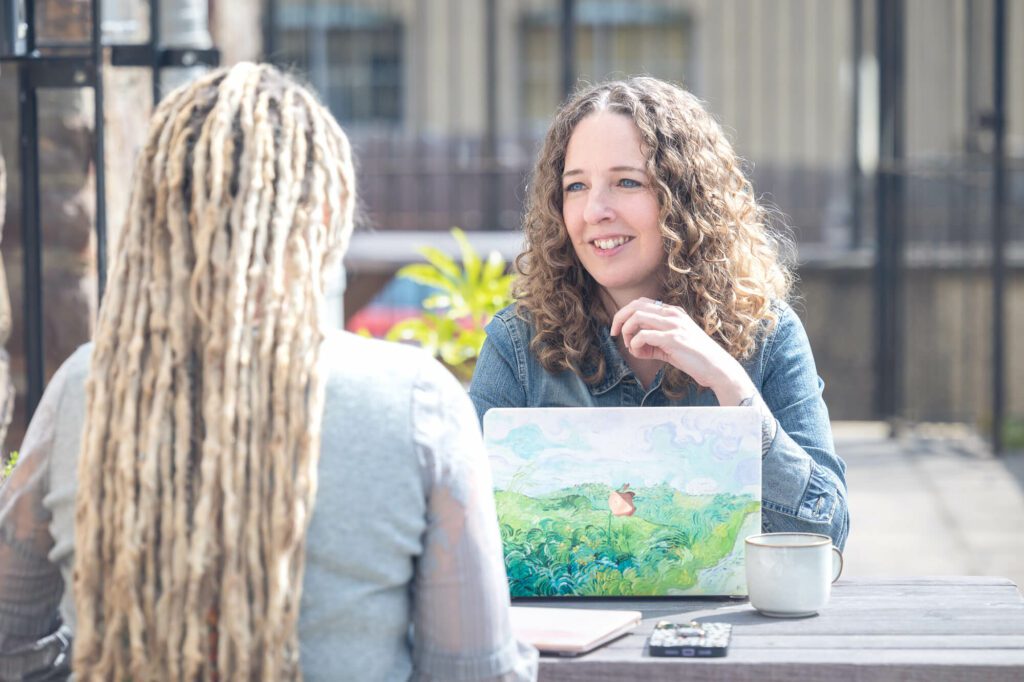
The challenge
LXS Consulting operates in a niche field with a limited market, with few competitors except for consultancy giants.
As such, a key challenge was to present the LXS team as clear authorities in their field, a specialist team that could be relied upon to handle complexity in a crisis, and that would be a first choice over more recognisable PLC firms.
LXS’s complex and potentially intangible service offering also needed to be presented in such a way that its value could be understood at a glance – and understood by a variety of decision makers, from the CTOs of alt-nets to the procurement teams of long established companies.


The solution
To begin with, we sat down for an afternoon with the LXS core team and gradually unpacked LXS’s history, values, USPs, and business objectives.
The aim was to rework the brand from the ground up, so we asked questions as if we were working with a blank canvas, getting beneath the surface of how the LXS team would usually describe themselves.
“Over the course of the discussion, we found new ways of articulating our differentiators,” says Nathan. “The RH&Co team then went away and defined the refined core messages of our brand. It was clear even from those initial ideas that the team understood who we were and what mattered to our audience.”
After defining the key messages, we worked together with The Discourse to translate this brand narrative into a website structure. We handled the words while they handled the design, working as a team to deliver the client’s objectives.

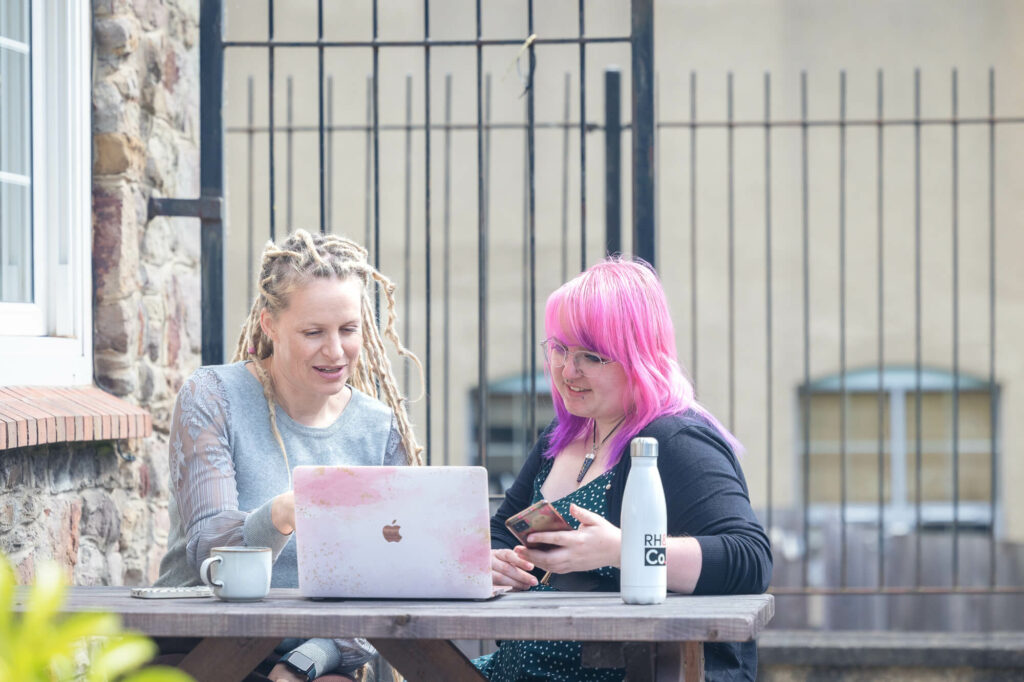
The results
The brand refresh and website launch was a big success for LXS, helping to establish a strong brand identity for their technical consultancy work, and providing their team with clear, convincing messages that helped to land them new work.
“The scope of the work evolved during the writing process, it was a fast turnaround from our initial discussions to the launch of our new site.” says Nathan. “We’re really happy with the final outcome and the process that got us there.”

More case studies
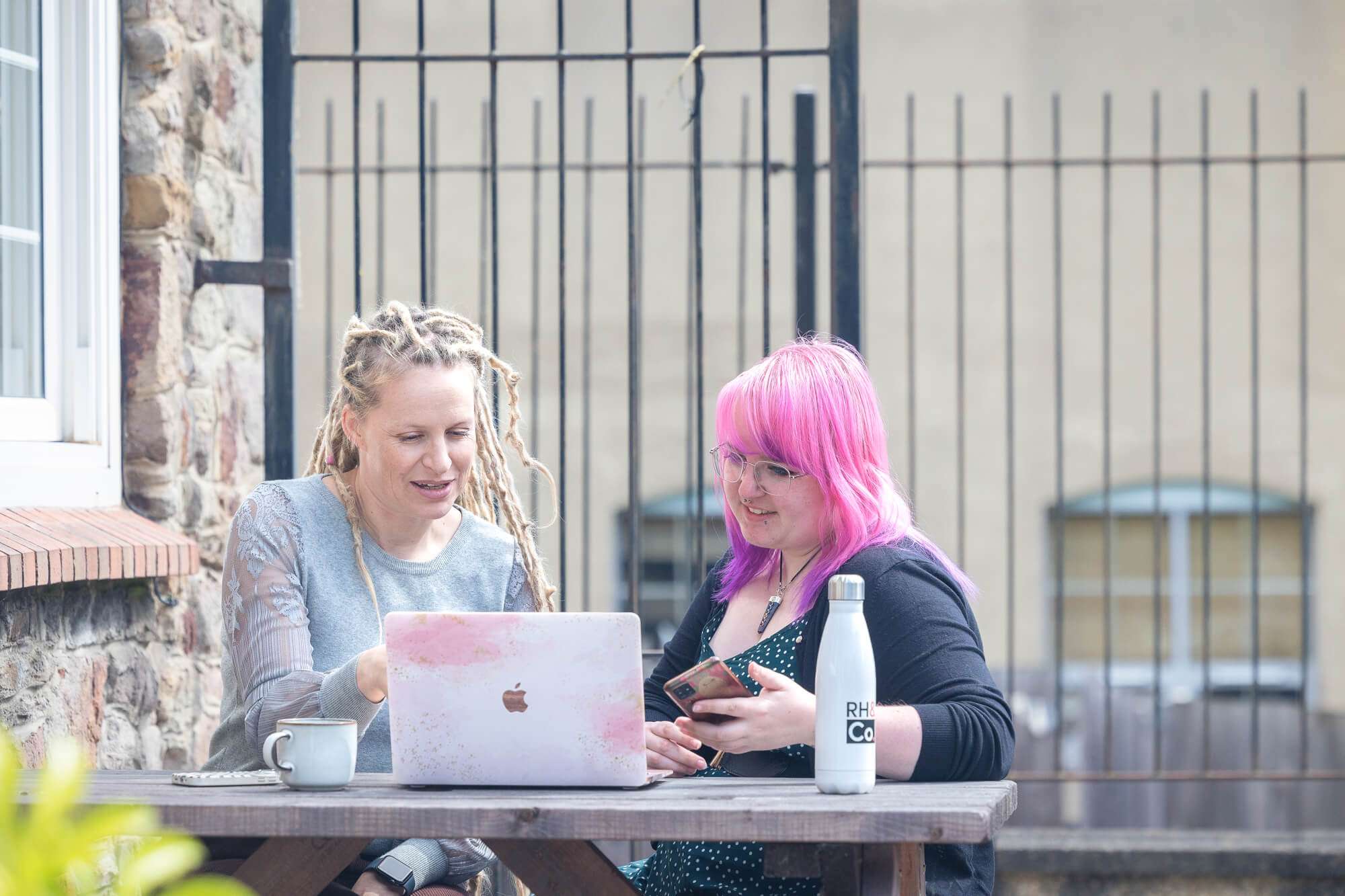
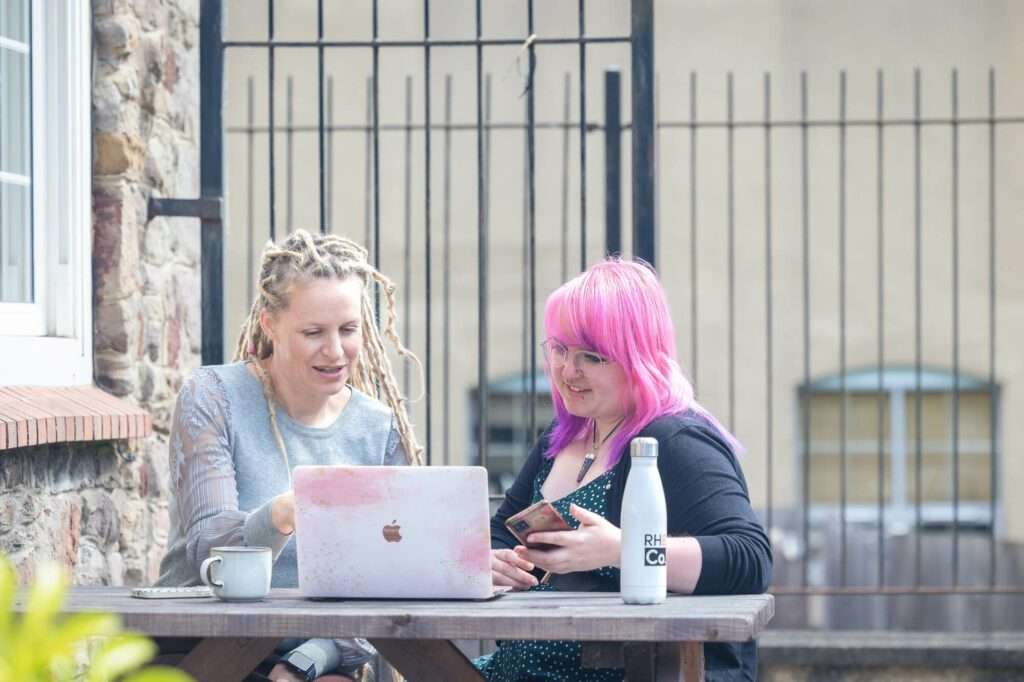
PSI Mobile: Case study, blogging, email, LinkedIn
Enabling PSI Mobile to engage a highly specific audience
Industry: Tech, telecom and utility sales software
PSI Mobile – helping sales companies to provide best in class customer experiences
PSI Mobile is a software company that has been delivering innovative end-user experience solutions to utility and telecom companies for over 14 years.
Founded in the early 2000s in Dublin, Ireland, PSI now operates in over 40 countries worldwide. As they’ve grown, they’ve come to partner with the likes of Vodafone, Ogi and Unicef.
Since we began working with PSI in 2022, our content expertise has played a key role in boosting engagement with a highly specific audience and providing crucial click-throughs to their website. Here’s how we did it.


“Our industry is relatively complex, and your team just gets it.”
– David Costello, CEO of PSI Mobile
The problem
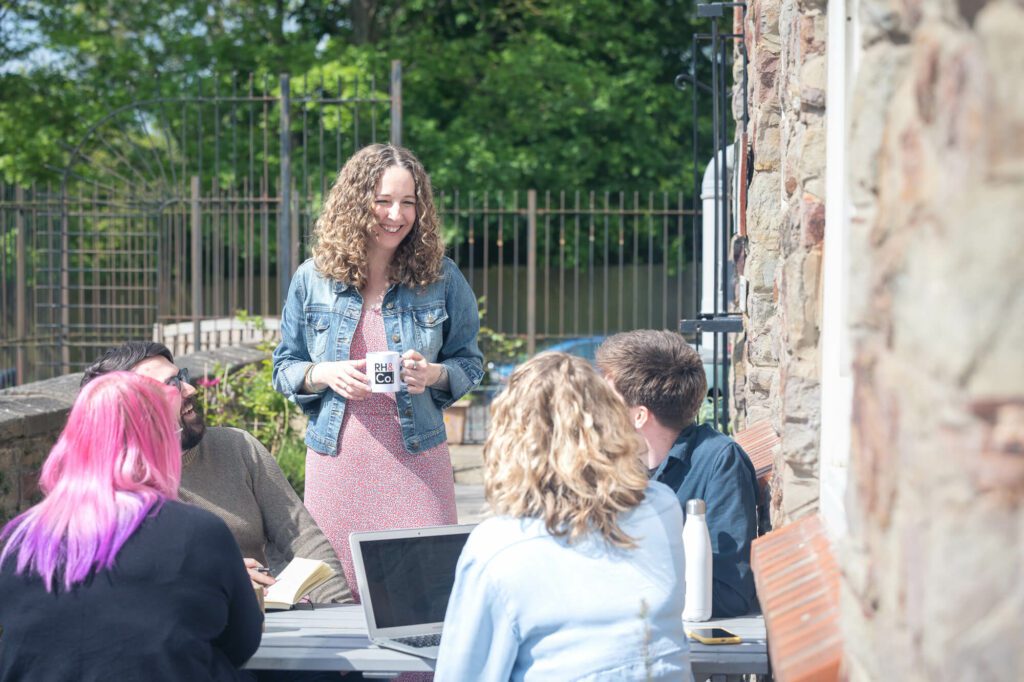
Proving the value of a complex product
PSI’s technology is not a simple SaaS product. Sales cycles are long, and the results for clients are nuanced and multifaceted.
They needed more than one-line testimonials to bring PSI software’s benefits to life, and this meant it was all the more important for PSI to publish content and case studies as social proof of their software’s value.
When Sarah Roberts started as Commercial Manager at PSI, she was keen to start promoting client use cases and started with one that was already half assembled, consisting of a spread of lengthy interviews with developers, clients and stakeholders.
For a while these had been bouncing around between different people – internal and external. And with so many contributing to what the case study should be, the heart of their story was getting lost, and the social proof of their product remained unpublished.
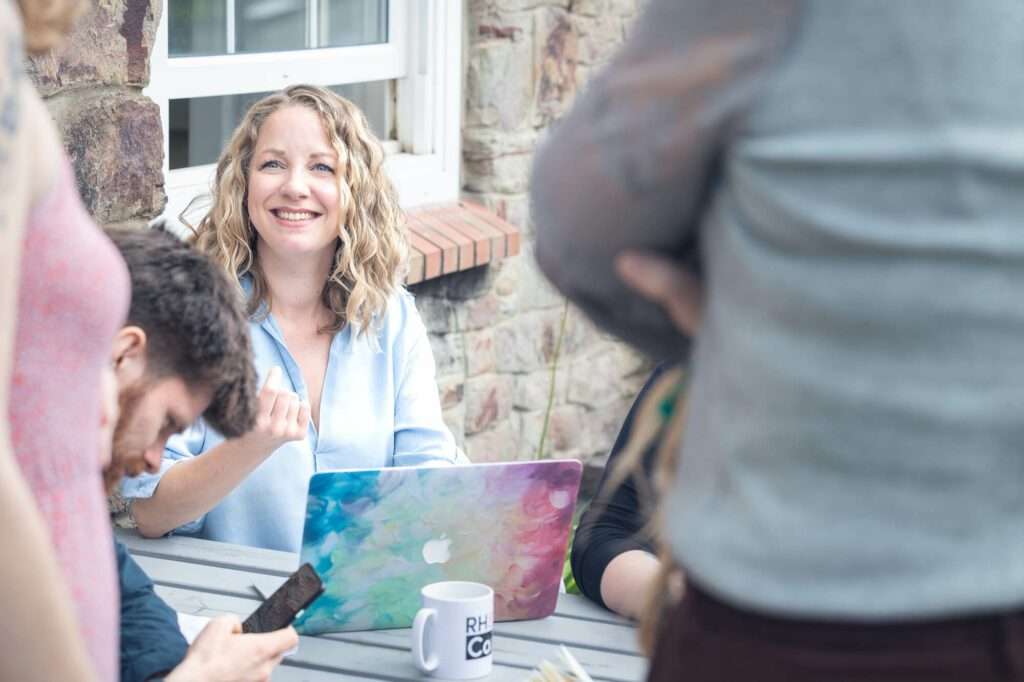
No obvious in-house or outsourced answer
“The problem was no one was an expert in this area, so no one could take the reins,” says Sarah. “I’d sit there for an hour trying to write a LinkedIn post, getting stressed out and wondering: is this right?”
It wasn’t easy to identify a way to outsource the problem either. CEO of PSI, David Costello, had worked with external people before, but kept hitting a wall. “The results we were getting were opaque and not really what we are about,” he says.
That all changed when Rin Hamburgh & Co came on board. Although PSI’s experiences had given them reason to be cautious with agencies, Sarah had worked with us while representing another client, and she was already confident we were the right team for the job.
The solution
The results
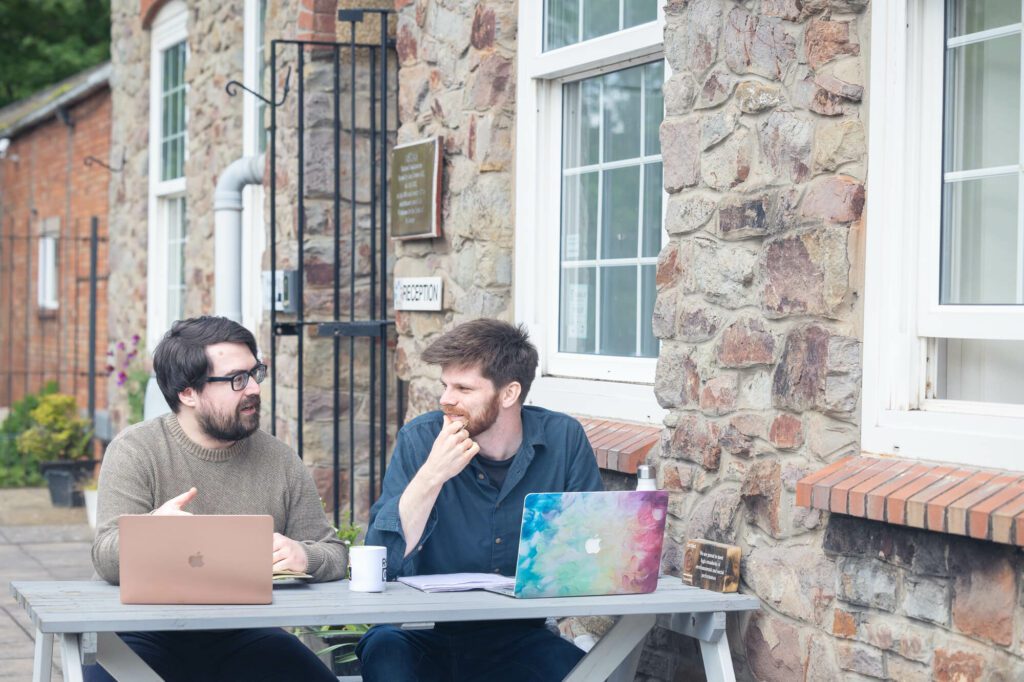
Increased click-throughs and reader engagement
PSI found that their awareness journey yielded great results. Stats on Hotjar, which gives a heatmap of end-user activity to help you understand how people really experience your site, showed some promising results.
From the case study we wrote for PSI, 61% of users reached the ‘Solution’ section of the page, meaning they scrolled at least 50% of the way down the 1,000 word article, while a full 50% of visitors reached the ‘Outcomes’ section at the end of the article.
The associated Linkedin posts also generated click through rates of 0.65-0.77%, significantly above the bar of industry standards.“Our audience is so specific, so any click-throughs for us are such a win,” says Sarah.
Following this initial success, we have gone on to help PSI with content strategy and more campaigns – including a major download, a video script, and further case studies, all supported by ongoing blogging and social copy.

“Our audience is so specific so any click-throughs for us are such a win.”
– Sarah Roberts, Commercial Manager at PSI Mobile

A seamless journey to the outcomes PSI needed
“You guys understood the essence of what we do, and added in extra expertise that we didn’t have,” says David. “Our industry is relatively complex, and your team just gets it.”
Sarah adds, “Nothing ever seems to be a problem for your team. And you’re not afraid to give your unbiased opinion.”
We worked collaboratively to figure out how we could get everything complete in a realistic timeframe for everyone involved – which Sarah and David note was one of the best things about working with us.
“When we engage in a piece of content with you, the interaction is very much to the point,” says David. “Sometimes we’d be trying to articulate something internally, but getting you involved meant that you could work your magic on it, and save us loads of time.”
“Getting involved with a team that provides creative, project management, strategy and consistent comms in one neat package,” says Sarah. “That was really rewarding.”
More case studies
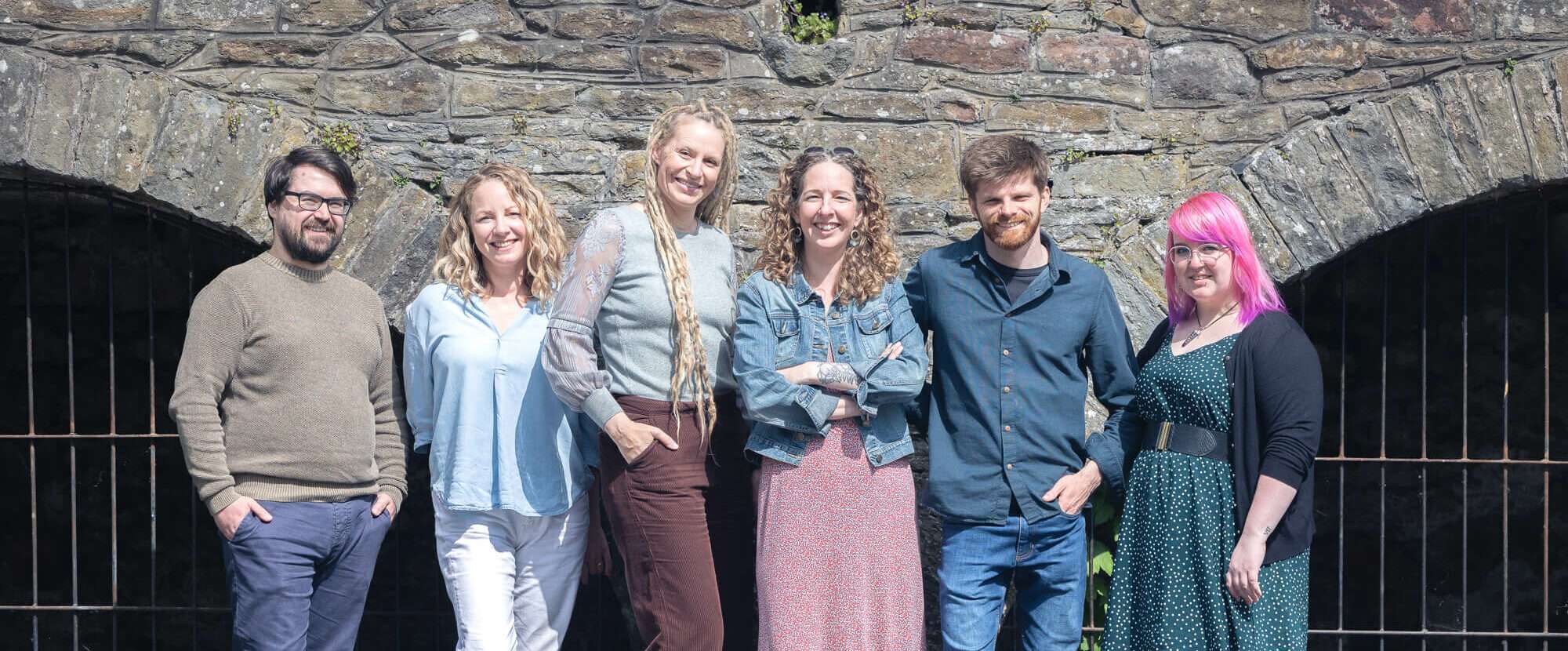
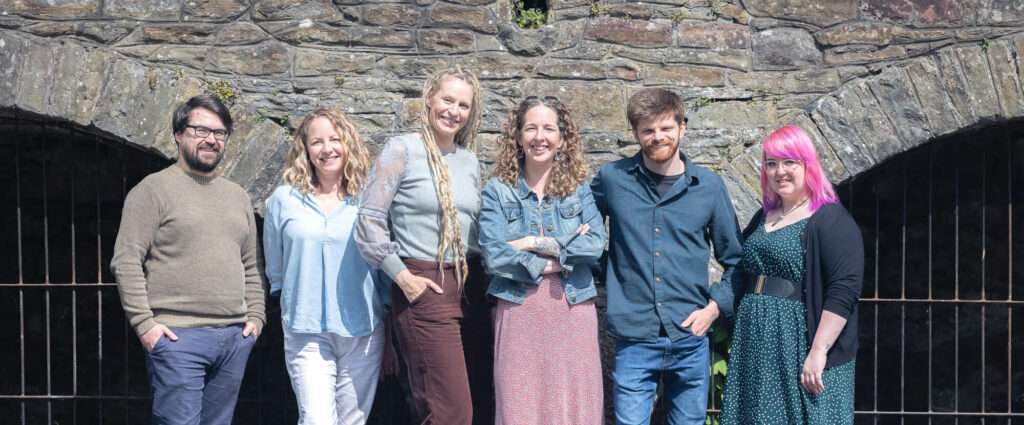
Nick Sturge MBE: book chapter
How we helped chartered director and strategic advisor Nick Sturge MBE articulate his expertise
Industry: B2B services, consultancy


“Instead of just wordsmithing my spiel, they wanted to produce something that represented what I stood for.”
– Nick Sturge, Strategic Advisor

A strategic advisor sharing his wisdom in print
Nick Sturge MBE is a chartered director and strategic advisor for entrepreneurs and growing businesses. Former director of Engine Shed and current Non Executive Chair at TechSPARK, among other things, he has extensive experience creating and fostering innovation ecosystems which enable entrepreneurs to develop their ideas and businesses in a sustainable way.
As a policy advisor for UKSPA, the United Kingdom Science Park Association, Nick was asked to contribute a chapter on the entrepreneur’s journey to their book, The Planning, Development and Operation of Science Parks – UKSPA’s definitive guide to the creation and management of innovation locations in the UK. An expert in his field, Nick wanted to stamp his authority on the 6,500-word chapter, but wasn’t entirely sure how to get his ideas across. Cue RH&Co.

The writing process

Structuring streams of consciousness
Nick initially expected that we were going to rely heavily on his guidance, but he was pleasantly surprised.
“One can get protective of a style and it’s a fine balance,” says Nick. “I certainly need a challenge because sometimes I am wrong. In this case I knew what I couldn’t do was structure a stream of consciousness, but that’s what RH&Co did.”


A trust exercise that paid off
We started by briefing in overview, before going away and working on structure, and then interviewing Nick in more detail, producing copy and then iterating.
“Finding the balance with a professional partner in this context is important,” says Nick. “You can push back and say, no it’s better written like this, or that. We were able to do this because we built up a strong trust relationship, so there was room for constructive challenge and it kept our conversations easy and productive.”
That trust extended beyond working with Rin herself. “It’s often a challenge with an agency that you get 5 minutes of the expert, and 55 minutes of someone else,” says Nick. “But I didn’t feel like I was compromising with RH & Co.”

The outcome
More case studies


Nick Sturge MBE: book chapter
How we helped chartered director and strategic advisor Nick Sturge MBE articulate his expertise
Industry: B2B services, consultancy
A disruptive product at the pre-MVP stage
Housecure is a proptech platform designed to make every aspect of home ownership a delightful experience, with an initial focus on removing the need for an offer-to-exchange period. It’s founded by Max Inglis, a serial entrepreneur, and Theo Inglis, a seasoned product developer and co-founder of digital consultancy Thought and Function.
‘Stress free property transactions’ is the strapline that describes the duo’s initial ambitions for the Housecure platform. And while it’s a disruptive proposition, Housecure are not attempting to be a cutting edge brand so much as an accessible one.
“We want to build a company that is actively helping people who are struggling in the market,” says Theo. “We believe they’re struggling unfairly, and the ones profiting from the current system are typically exploiting it.”
The Housecure team has larger goals as well. As Max explains, “The importance of a family home cannot be understated as homeownership boosts the educational performance of children, improves healthcare outcomes, lowers crime rates and lessens welfare dependency.


“Instead of just wordsmithing my spiel, they wanted to produce something that represented what I stood for.”
– Nick Sturge, Strategic Advisor
The challenge

The face of a product yet to launch
At the time of writing, Housecure’s vision lies behind an MVP still in development.
“Our mission isn’t to use the website as a means of lead generation yet – since we haven’t released the product,” says Theo. “We don’t care about how we’re ranking. The real goal is to be clear as to what we’re offering, so we can get beta users and build partnerships.”

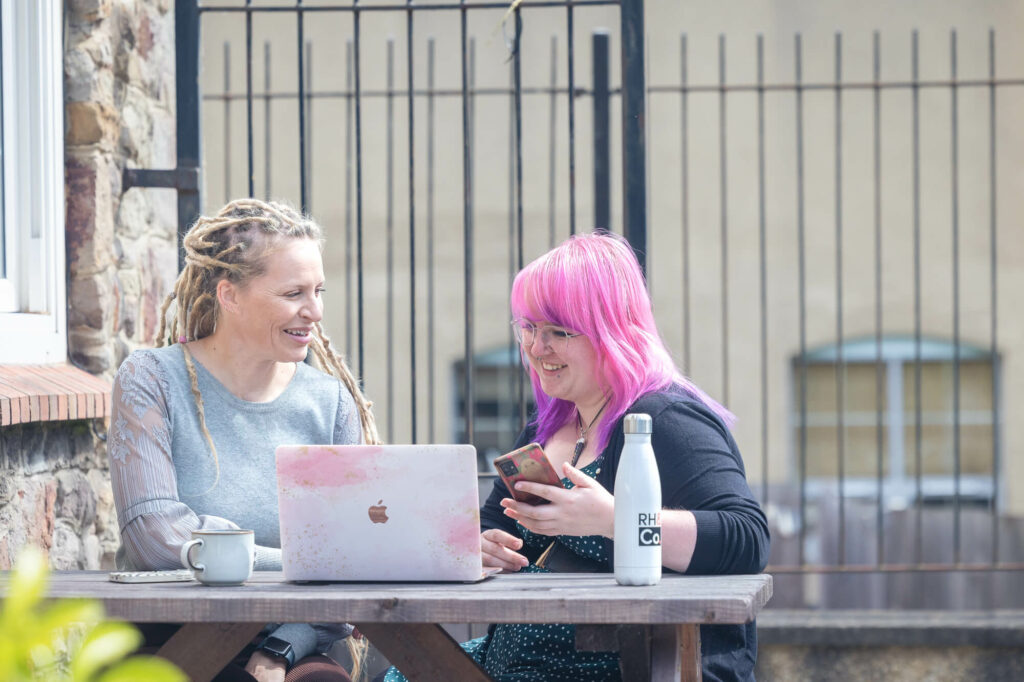
Writing for an audience that might know nothing
“Both Max and myself are used to writing professional documents where you can assume a certain level of understanding,” says Theo. “But the Housecure site would need to be accessible.”
It was important to ensure the Housecure site was simple, clear and directed to the right audience – an audience that might not see their problem clearly enough to instantly recognise the value of the solution.


Fluid messaging for an evolving product
The platform needed a website that clearly articulated its mission, and that would be ready to welcome all users once the product went live, but that product was likely to evolve quickly.
“That’s the challenge of working with startups,” says Theo, “Right now we’re selling one thing, in three months time we should be selling something more or something else. So the key messaging on our website needed to be fluid, focusing on the heart of what we’re doing rather than just the features of the product.
The writing process

Structuring streams of consciousness
Nick initially expected that we were going to rely heavily on his guidance, but he was pleasantly surprised.
“One can get protective of a style and it’s a fine balance,” says Nick. “I certainly need a challenge because sometimes I am wrong. In this case I knew what I couldn’t do was structure a stream of consciousness, but that’s what RH&Co did.”


A trust exercise that paid off
We started by briefing in overview, before going away and working on structure, and then interviewing Nick in more detail, producing copy and then iterating.
“Finding the balance with a professional partner in this context is important,” says Nick. “You can push back and say, no it’s better written like this, or that. We were able to do this because we built up a strong trust relationship, so there was room for constructive challenge and it kept our conversations easy and productive.”
That trust extended beyond working with Rin herself. “It’s often a challenge with an agency that you get 5 minutes of the expert, and 55 minutes of someone else,” says Nick. “But I didn’t feel like I was compromising with RH & Co.”

More case studies


Nick Sturge MBE: book chapter
How we helped chartered director and strategic advisor Nick Sturge MBE articulate his expertise
Industry: B2B services, consultancy
A disruptive product at the pre-MVP stage
Housecure is a proptech platform designed to make every aspect of home ownership a delightful experience, with an initial focus on removing the need for an offer-to-exchange period. It’s founded by Max Inglis, a serial entrepreneur, and Theo Inglis, a seasoned product developer and co-founder of digital consultancy Thought and Function.
‘Stress free property transactions’ is the strapline that describes the duo’s initial ambitions for the Housecure platform. And while it’s a disruptive proposition, Housecure are not attempting to be a cutting edge brand so much as an accessible one.
“We want to build a company that is actively helping people who are struggling in the market,” says Theo. “We believe they’re struggling unfairly, and the ones profiting from the current system are typically exploiting it.”
The Housecure team has larger goals as well. As Max explains, “The importance of a family home cannot be understated as homeownership boosts the educational performance of children, improves healthcare outcomes, lowers crime rates and lessens welfare dependency.


“Instead of just wordsmithing my spiel, they wanted to produce something that represented what I stood for.”
– Nick Sturge, Strategic Advisor
The challenge

The face of a product yet to launch
At the time of writing, Housecure’s vision lies behind an MVP still in development.
“Our mission isn’t to use the website as a means of lead generation yet – since we haven’t released the product,” says Theo. “We don’t care about how we’re ranking. The real goal is to be clear as to what we’re offering, so we can get beta users and build partnerships.”


Writing for an audience that might know nothing
“Both Max and myself are used to writing professional documents where you can assume a certain level of understanding,” says Theo. “But the Housecure site would need to be accessible.”
It was important to ensure the Housecure site was simple, clear and directed to the right audience – an audience that might not see their problem clearly enough to instantly recognise the value of the solution.


Fluid messaging for an evolving product
The platform needed a website that clearly articulated its mission, and that would be ready to welcome all users once the product went live, but that product was likely to evolve quickly.
“That’s the challenge of working with startups,” says Theo, “Right now we’re selling one thing, in three months time we should be selling something more or something else. So the key messaging on our website needed to be fluid, focusing on the heart of what we’re doing rather than just the features of the product.
The writing process

Structuring streams of consciousness
Nick initially expected that we were going to rely heavily on his guidance, but he was pleasantly surprised.
“One can get protective of a style and it’s a fine balance,” says Nick. “I certainly need a challenge because sometimes I am wrong. In this case I knew what I couldn’t do was structure a stream of consciousness, but that’s what RH&Co did.”


A trust exercise that paid off
We started by briefing in overview, before going away and working on structure, and then interviewing Nick in more detail, producing copy and then iterating.
“Finding the balance with a professional partner in this context is important,” says Nick. “You can push back and say, no it’s better written like this, or that. We were able to do this because we built up a strong trust relationship, so there was room for constructive challenge and it kept our conversations easy and productive.”
That trust extended beyond working with Rin herself. “It’s often a challenge with an agency that you get 5 minutes of the expert, and 55 minutes of someone else,” says Nick. “But I didn’t feel like I was compromising with RH & Co.”

More case studies


PSI Mobile: Case study, blogging, email, LinkedIn
Enabling PSI Mobile to engage a highly specific audience
Industry: Tech, telecom and utility sales software


“To any client you can say, go and have a look at the website, and you can be confident that they’re going to find what they need.”
Tom Pearson, Communications & Marketing Lead
PSI Mobile – helping sales companies to provide best in class customer experiences
PSI Mobile is a software company that has been delivering innovative end-user experience solutions to utility and telecom companies for over 14 years.
Founded in the early 2000s in Dublin, Ireland, PSI now operates in over 40 countries worldwide. As they’ve grown, they’ve come to partner with the likes of Vodafone, Ogi and Unicef.
Since we began working with PSI in 2022, our content expertise has played a key role in boosting engagement with a highly specific audience and providing crucial click-throughs to their website. Here’s how we did it.

The challenge
Jumping the communication gap between specialist and audience
The Land App team is made of experts who each bring specialist knowledge to the table – from land management to permaculture, conservation and data analysis – and who are passionate advocates of their platform. But because everyone was so deep into their work, it was difficult to think objectively about their communication.
“Up to now, it’s been the founders trying to do everything themselves,” says Tom Pearson, Communications and Marketing Lead at The Land App. “But sometimes you need to step back and ask, are people understanding this? We have this rich, deep insight into what we’re doing, but how does that translate?”

The challenge
Targeting a wide spectrum of audiences
The Land App is an impressive tool designed for many types of specialist users. The trouble is that all of these users each have their own needs, and The Land App team were unsure of how to distil their message down through so many different channels on one website.
“You could have an ecologist that’s using the platform for a habitat assessment, a surveyor doing someone’s building extension, or a land agent who’s completing a cropping plan,” says Tom.
“This makes the messaging really tricky to get your head around, because you want to appeal to all of these people. We could have funnelled people into a hundred different categories, but we also needed to distil the message without excluding anyone.”
The solution
An iterative approach
Working alongside the design team at Garrett Creative, we began by interviewing The Land App’s team so that we could scratch beneath the surface to unearth the heart of their product. From this we created a document that presented our initial ideas so The Land App could begin to give us feedback about the language and messaging – while Garrett Creative did the same thing with their visual messaging. After this we could run with their thoughts, mock up a couple of website pages, and receive feedback again before creating the entire site’s copy.
“The team are all so invested in the platform and the website,” says Tom. “It’s our baby and we wanted to make sure it was right. So it was really good to have these iterative drafts, to be able to comment along the way or have a call, listen to what you guys were saying, and make sure we were saying the right thing.”
The Land App saw this not only as a process that they were going to get great output from, but also as a learning exercise. It forced them to answer questions, such as who is using the platform? How can we streamline that without leaving anyone out? And how can we keep from overloading users with too much information?





